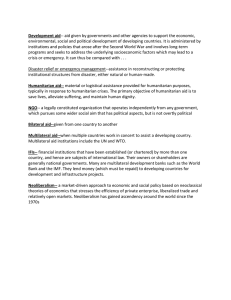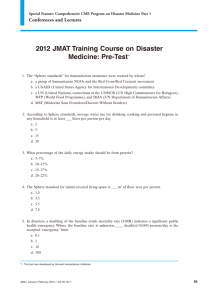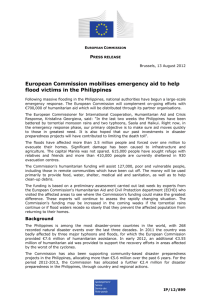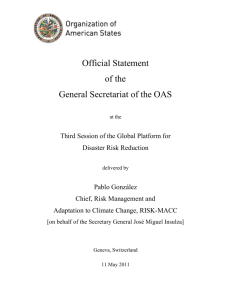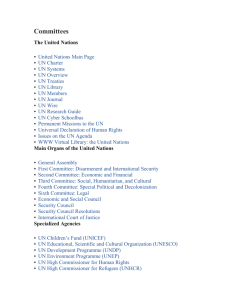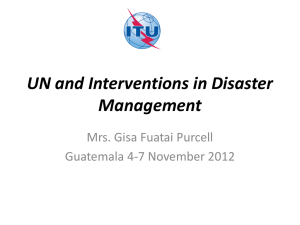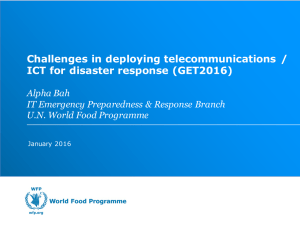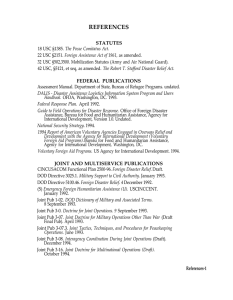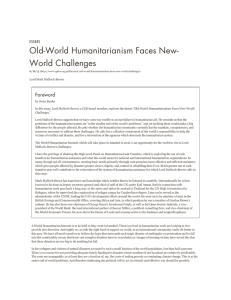UNITED NATIONS ORGANIZATIONS FOR HUMANITARIAN ASSISTANCE UNITED NATIONS DEPARTMENT OF HUMANITARIAN AFFAIRS
advertisement
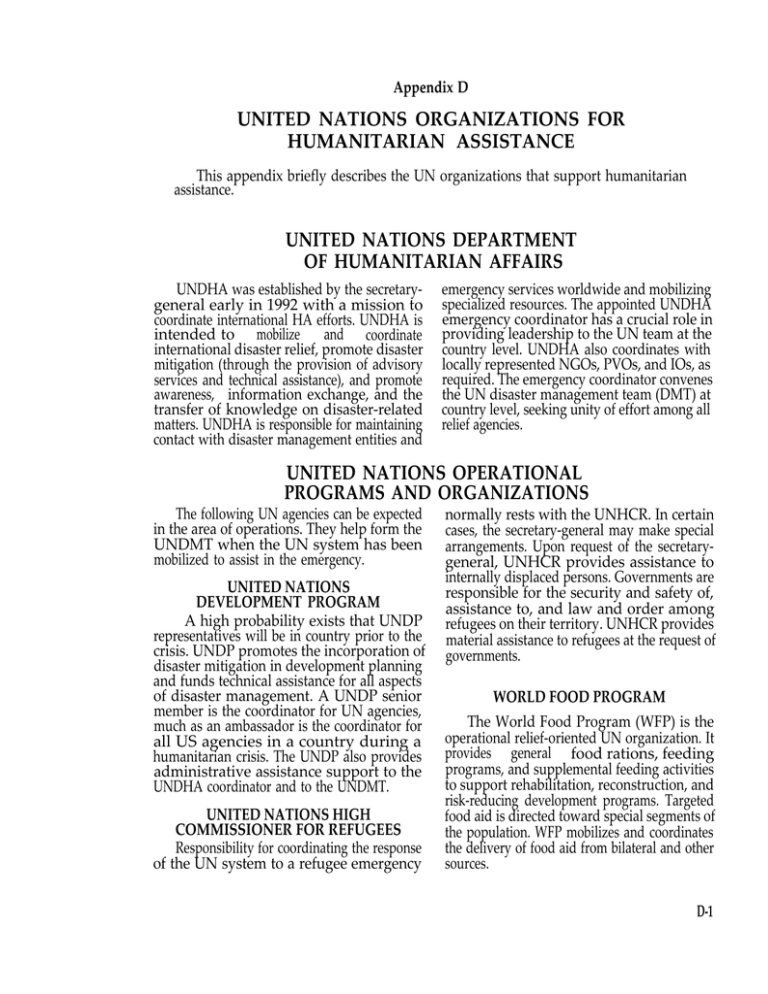
Appendix D UNITED NATIONS ORGANIZATIONS FOR HUMANITARIAN ASSISTANCE This appendix briefly describes the UN organizations that support humanitarian assistance. UNITED NATIONS DEPARTMENT OF HUMANITARIAN AFFAIRS UNDHA was established by the secretarygeneral early in 1992 with a mission to coordinate international HA efforts. UNDHA is intended to mobilize and coordinate international disaster relief, promote disaster mitigation (through the provision of advisory services and technical assistance), and promote awareness, information exchange, and the transfer of knowledge on disaster-related matters. UNDHA is responsible for maintaining contact with disaster management entities and emergency services worldwide and mobilizing specialized resources. The appointed UNDHA emergency coordinator has a crucial role in providing leadership to the UN team at the country level. UNDHA also coordinates with locally represented NGOs, PVOs, and IOs, as required. The emergency coordinator convenes the UN disaster management team (DMT) at country level, seeking unity of effort among all relief agencies. UNITED NATIONS OPERATIONAL PROGRAMS AND ORGANIZATIONS The following UN agencies can be expected in the area of operations. They help form the UNDMT when the UN system has been mobilized to assist in the emergency. UNITED NATIONS DEVELOPMENT PROGRAM A high probability exists that UNDP representatives will be in country prior to the crisis. UNDP promotes the incorporation of disaster mitigation in development planning and funds technical assistance for all aspects of disaster management. A UNDP senior member is the coordinator for UN agencies, much as an ambassador is the coordinator for all US agencies in a country during a humanitarian crisis. The UNDP also provides administrative assistance support to the UNDHA coordinator and to the UNDMT. UNITED NATIONS HIGH COMMISSIONER FOR REFUGEES Responsibility for coordinating the response of the UN system to a refugee emergency normally rests with the UNHCR. In certain cases, the secretary-general may make special arrangements. Upon request of the secretarygeneral, UNHCR provides assistance to internally displaced persons. Governments are responsible for the security and safety of, assistance to, and law and order among refugees on their territory. UNHCR provides material assistance to refugees at the request of governments. WORLD FOOD PROGRAM The World Food Program (WFP) is the operational relief-oriented UN organization. It provides general food rations, feeding programs, and supplemental feeding activities to support rehabilitation, reconstruction, and risk-reducing development programs. Targeted food aid is directed toward special segments of the population. WFP mobilizes and coordinates the delivery of food aid from bilateral and other sources. D-1 Humanitarian Assistance UNITED NATIONS CHILDRENS’ FUND UNICEF is a relief-oriented organization. It attends to the well-being of children and pregnant and lactating mothers, especially child health, nutrition, and water. The activities of this organization may include social programs, child feeding (in collaboration with WFP), potable water, sanitation, and direct health intervention (in coordination with the World Health Organization [WHO]). UNICEF provides material assistance, related management, logistical support and technical assistance. WORLD HEALTH ORGANIZATION WHO is an organization involved more in long-range programs. It provides advice and D-2 assistance in all aspects of preventive and curative health care. This assistance includes the preparedness of health services for rapid response to disasters. FOOD AND AGRICULTURE ORGANIZATION The Food and Agriculture Organization (FAO) is an organization also involved in longrange: programs. It provides technical advice in reducing vulnerability and helps in the rehabilitation of agriculture, livestock, and fisheries. The organization emphasizes local food production. It also monitors food production, exports, and imports and forecasts any requirements for exceptional food assistance.
